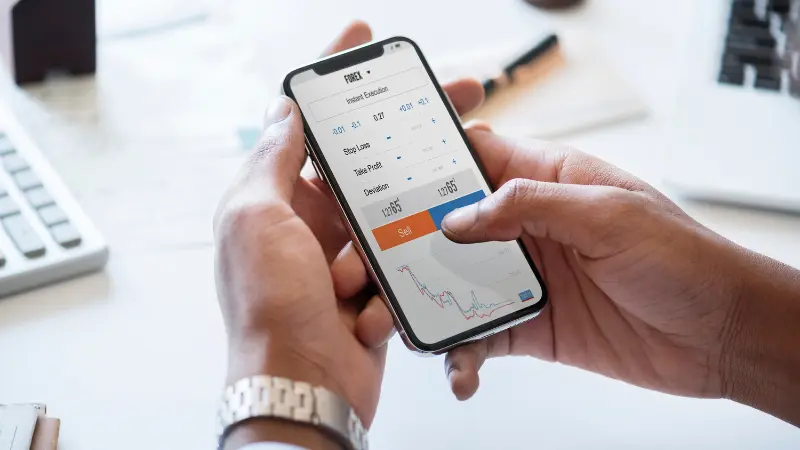
Investors who own shares or stocks of a company may have come across the terms record date and ex-dividend date. Every stock market investor must know about these and it is essential for them to understand these in the right perspective. Are they both the same? If not, what is the difference between them? Do these have an impact on selling shares? Here’s all that you need to know about record date and ex-dividend date and how the two terms are different from one another.
What is a corporate action?
To understand record date and ex-dividend date, we must first learn about the concept of corporate action. Corporate action are announcements made by corporations and has a significant impact on shareholders as it impacts the company’s financial structure. These are announced by the issuer of securities and tend to have an immediate impact on the company’s share price.
Some of the common corporate actions that are announced by companies include:
- Dividend
- Bonus issue
- Stock split
- Rights issue
- Share buyback
With the announcement of dividend, the company also has to align various associated actions on certain dates. This is when the record date and ex-dividend date comes into picture.
What is dividend and dividend announcement date?
Concept of dividend
Dividend is a portion of the company’s profits that is paid out to the company’s shareholders as part of its post-profit appropriation. Dividends are:
- paid out from the company’s net profits
- usually announced in percentage terms on par or face value of stock
- also announced in rupee terms
If, for example, a shareholder has 1000 shares of Infosys and the company has declared 90% dividend and the stock’s face value is Rs.10, it will mean a dividend of Rs.9 per share. Thus, the shareholder will receive Rs. 9,000 as dividend.
Dividend announcement date
The dividend announcement date is:
- the date at which the specific dividend is announced by the company
- announced during a company’s AGM or annual general meeting
So, how does a company decide which shareholder will get the dividends and who will not? A company’s ownership is constantly changing as investors and traders continue to buy and sell shares. Which shareholder is eligible to receive dividends? This is when the record date plays an important role.
What is the record date in a dividend announcement?
The record date is one of the most crucial data sets used in deciding the eligibility for dividend distribution. All the shareholder names that are part of the list of company shareholders at the end of the record date are considered eligible for dividends. A company’s shareholder records are duly maintained by the registrar and transfer agents.
Let’s taken an example to understand the concept of record date –
Suppose a company announces a record date as 30th of April while declaring and approving dividend distribution at an AGM. Thus, all shareholders whose names are part of the list of shareholders as of 30th April will be eligible for dividends.
However, an issue with the shareholder eligibility as of the record date is that as per the rolling settlement, a buyer’s shares are credited only after two days from the actual purchase. Thus, even if one purchases shares of a company by the record date, the shares must be in his/her demat account on the record date to be considered eligible for dividends. This is when the concept of ex-dividend date comes into play.
What is the ex-dividend date?
The ex-dividend date is the date that is 1 trading day before the record date.
In the earlier example, as the record date is 30th April, the ex-dividend date will be considered as T-1 or 29th April.
The last cum-dividend date here will be 28th April. This is based on the assumption that no trading holidays fall in between these dates. In case of any trading holidays, the ex dividend date will be pushed back.
It is important to note here that T-1 is the date on which the company’s stock will begin trading ex-dividend. As soon as the trading begins on 29th, the company’s stock will open ex-dividend. Therefore, if an investor wants to earn the dividend, he/she must purchase the company’s shares on the last cum-dividend date, 28th April, in this case. If one buys the shares cum-dividend on 26th April, then the delivery will be done by 28th April. Thus, the shareholder will then be eligible to receive the dividends.
Difference between record date and ex dividend date
Here are some key points that can help shareholders differentiate between record date and ex dividend date:
- Due to the norm of stock settlement followed by the Indian stock markets, trades are settled on T+2 basis. Therefore, the ex dividend date will always be one day before the record date.
- The main difference between the two is related to the dates that each falls on. The record date is the date on which an investor’s name must be present as a shareholder on the company’s register. Only if his/her name is present, can they have a claim on the company’s dividends, as declared.
- Ex dividend date is the cut-off date on or post which an investor who buys the company’s shares will not be eligible for dividend claims.
- While the record date only considers the ownership of the shares, the ex dividend date considers only the date of share purchase.
Conclusion
It is a listed company’s board of directors who are responsible for setting the record date. However, the ex-dividend date is determined as per the stock exchange norms. Investors must ensure that they buy the company shares before the ex-dividend date to be eligible to receive dividends from the company, if any are declared.
FAQs
Since dividend declaration has an immediate impact on stock prices, investors must make sure to keep a note of the record date and ex-dividend date while designing their investment strategy. Both these can impact one’s dividend eligibility and also impact investment plans due to stock price movements.
Stock prices tend to fall on the ex-dividend date after dividend declaration. Securities that trade on a value excluding dividend are said to be trading in ‘ex-dividend’ state.
A company’s board of directors have the authority to declare dividend distribution.
To avail dividends, an investor must hold the shares till at least the ex-dividend date. If an investor decides to sell the shares on the ex-dividend date, he/she can still receive dividends since the trade will be executed on a T+2 basis and thereby settled 2 days after the ex-dividend date.
Dividend acts as an additional income source for investors. Some companies may declare dividends during high profit periods as a way to offer a return on investment to shareholders and gain long-term credibility in the market.




















